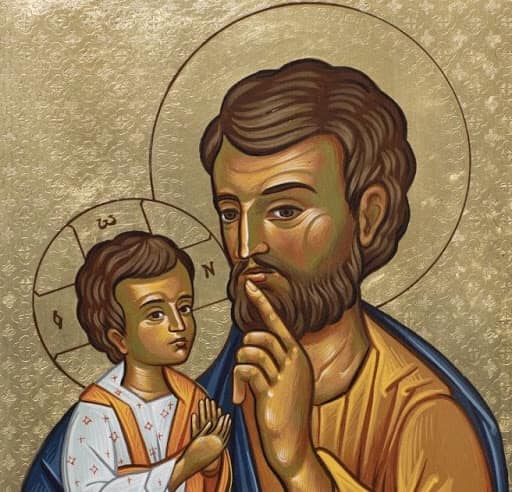 Gospel of 1 May 2020
Gospel of 1 May 2020
Feast of St Joseph the Worker
Matthew 13:54-58
A prophet is only despised in his own country
Coming to his home town, Jesus taught the people in their synagogue in such a way that they were astonished and said, ‘Where did the man get this wisdom and these miraculous powers? This is the carpenter’s son, surely? Is not his mother the woman called Mary, and his brothers James and Joseph and Simon and Jude? His sisters, too, are they not all here with us? So where did the man get it all?’ And they would not accept him. But Jesus said to them, ‘A prophet is only despised in his own country and in his own house’, and he did not work many miracles there because of their lack of faith.
Reflexion
As countries throughout the world struggle with the difficult decision on how and when to slowly reopen their country and the economy, the debate seems to have descended into a zero sum game of choosing lives over livelihood or vice versa. The two main arguments are “if you choose to open the economy and allow people to go back to work, you are endangering lives and risking killing more people” or “if you continue to keep the economy closed, you will ruin people’s lives by cutting them off from their necessary livelihood.” At first glance, it looks like a Catch 22 situation - damned if you do, and damned if you don’t.
To establish, as a general rule, a conflict between the respect for life and making money, is both false and dangerous. The greed for money and wealth is a sin that is very real and something to be avoided. But God has also established it as part of our human condition that work, even work undertaken for the sake of making money and providing for one’s own needs and those of others, is intimately connected with life and happiness.
Beginning in the Book of Genesis, the dignity of human work has long been celebrated as a participation in the creative work of God. By their work, humankind fulfills both the command found in Genesis to care for the earth (Gn 2:15) and to be productive in their labours. Saint Joseph, the carpenter and foster father of Jesus, is but one example of the holiness of human labour. Jesus, the Incarnate Word, as part of His human nature also took on the work of a carpenter. He learned the trade from Saint Joseph and spent His early adult years working side-by-side in Joseph’s carpentry shop before starting His public ministry.
But man should never be a slave to his work. This is the reason why God instituted the Sabbath rest. Man received life not simply for himself and his own enjoyment, rather, God created man for Himself; man exists for God. Because that is the reason for man's existence, God determined that man should have one day free from the concerns of daily life so that on that day, he might have the opportunity to focus all his attention on the Creator. The Sabbath, as God gave it, is essentially God-centered.
But with Easter, our Lord established a work that is far more superior and greater than human labour - it is the work of salvation. If man participates in God’s creative work through his labour and as a new creation in Christ, he is also called to participate in Christ’s work of salvation.
Work is important, it is essential and it is even holy when it is done in submission to the Creator’s will. But now work has been elevated to a higher plane by Christ’s death and resurrection. Work, especially the work of preaching the gospel of Christ, is also salvific.
Our government, like many other governments throughout the world, suspended most of our civil and religious liberties for the good of preserving life through slowing the spread of a highly infectious coronavirus. Many have lost their jobs and others now struggle to adapt their work and businesses to a “new normal.” Yet now our leaders must make the decision of when to allow people to leave their homes, to travel, to pray together in our respective houses of worship, and to work.
Let us ask St Joseph to intercede for us, and not just for all workers but also the civil authorities in making the necessary judgment to find a balance between preserving life and allowing individuals and families to work for their livelihood. At the end of the day, it doesn’t need to boil down to a choice between life and money. It’s always a choice to protect life, which also means allowing them the dignity and the right to earn a proper livelihood.
